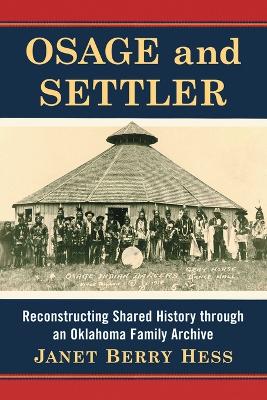Against the understanding of Jacques Derrida, who initiated analysis of archives as an expression of state power, the archive can be seen as a disruption or break in the standard presentation and operation of power. In this text the author employs a family archive-consisting of correspondence, diaries, interviews, journalistic accounts, records, photographs, artwork and maps-as well as archival and historical material from the Osage to document a unique relationship among white settlers, the Osage, and African Americans in Oklahoma.
Settler/occupier histories are often homogenized or discussed solely in the context of the cultural erasure of, and centuries of violence perpetuated against American Indian peoples and black individuals who were enslaved. Older documentation of the settlement/relocation experience provides a vision, partially romanticized, of occupants of "Indian Territory" which often conclude with colonial conquest, or include accounts of white settlement that slight their own experience and suffering. This text employs an anthropological framework that examines lived experience, nuanced and intersecting relationships, and histories as they took place in specific work contexts and spaces in Oklahoma, providing an account of interactions among settlers, African Americans, and the Osage in the voices of those who were there. It argues that identities are mutually arising, even in the context of oppression and violence, and that architecture, art, body ornamentation, sacred objects, ceremonies, and performances-as well as exhibition practices-reflect such intersectional cultures and identities.
- ISBN13 9780786495825
- Publish Date 29 May 2015
- Publish Status Active
- Publish Country US
- Imprint McFarland & Co Inc
- Format Paperback
- Pages 232
- Language English
